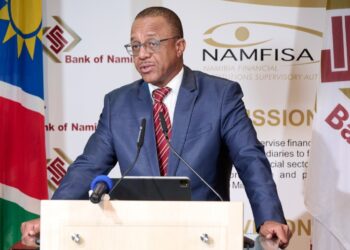
Namibia is currently facing a worrisome trend where businesses are prioritising debt repayment over seeking new credit for investment, raising concerns about the country’s economic growth prospects, experts have said.Â
According to the latest data from Simonis Storm, with businesses prioritising debt repayment over investment and a high repo rate deterring borrowing, there is a risk that economic growth may stall.
This comes as in the second quarter of 2023, Namibia’s Gross Domestic Product (GDP) registered a modest growth of 3.7% year-on-year (y/y).Â
However, the firm notes that this growth could be at risk if businesses continue to refrain from investing in expansion and infrastructure.Â
“The high repo rate does not help the situation, as businesses and households have less appetite for credit and will rather dive into their savings,” noted Angelique Bock, a researcher at Simonis Storm.
The Bank of Namibia (BoN) kept the repo rate unchanged at 7.75% during its September meeting.
Simonis Storm predicts that BoN will maintain this rate during its October 25, 2023, meeting. However, the firm expects a repo rate hike of at least 25 basis points in December due to concerns about rising oil prices and their potential impact on future inflation rates.
“One concerning aspect of this trend is that businesses in various sectors are consistently repaying more debt than they are taking out. Key sectors like transport, fishing, services, and wholesale and retail are notable examples,” explained Bock.
The Bank of Namibia reports that businesses in these sectors have been making substantial net repayments, signaling their reluctance to borrow for investment.
As of August 2023, total credit extended to Namibia’s private sector stood at N$119.3 billion. Households hold 56% of this credit, while businesses hold 38%, and foreigners hold 6%.
Importantly, the average share of credit held by businesses has dropped to 26%, marking its lowest level since 2003.
Â
Â
Â
Â
Â
Â











